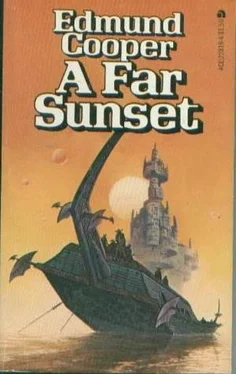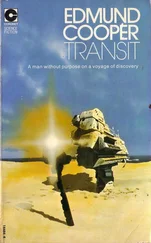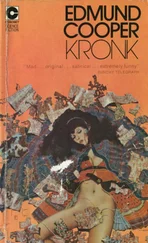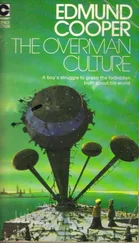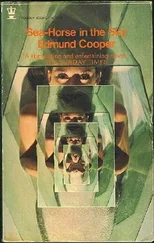‘Many days indeed.’
‘What, then, is the tongue you would speak with your own kind?’
‘It is called English.’
‘I wish to speak this Ong Lys. For then I might more perfectly understand the thoughts of Poul Mer Lo.’
‘Shah Shan, what is the use? There is no one but I who can speak this tongue.’
‘Perhaps, my lord, that is why I wish to learn it… I am a poor and insignificant person, having nothing to offer you. But my friend would be greatly pleased.’
Paul Marlowe smiled. ‘It shall be as you wish, Shah Shan. Your friend is either very clever or very simple.’
Shah Shan looked at him in surprise. ‘You do not know which?’ he asked. ‘But why cannot my friend be both?’
Paul Marlowe banged the calabash hard against the step of the verandah where he was sitting. Silently, Mylai Tui poured some more kappa spirit into it.
He took a long swig and felt a bitter satisfaction as the fiery liquid wrought havoc in his throat and his stomach. He was getting drunk rapidly and he didn’t give a damn.
‘Big breasted brown-faced bitch,’ he muttered in English.
‘My lord?’ said Mylai Tui uncertainly.
‘Say Paul, damn you! ’ Again in English.
‘Paul?’ repeated Mylai Tui anxiously. It was the only word she had caught.
‘Thank you,’ he snapped in Bayani. ‘Now be silent. There are times when a man needs to become a fool. This is one of them.’
Mylai Tui bowed her head and sat cross-legged, cradling the pitcher of kappa spirit in her lap, mindful of the future needs of Poul Mer Lo.
It was twilight and the nine moons of Altair Five were pursuing each other across the sky like … Like what? thought Paul Marlowe … Like frightened birds … Nine cosmic cinders on the wing…
‘I am dead,’ he said in English. ‘I am a corpse with a memory … What the hell is going on in Piccadilly Circus tonight? Who won the test match, and what sensational scandals will break in the Sunday papers tomorrow? For clearly tonight is Saturday night. Therefore let there be a great rejoicing.’
He emptied the calabash, shuddered, and banged it against the verandah step once more. Silently, Mylai Tui refilled it.
He wanted to listen to Beethoven—any old Beethoven would do. But the nearest stereo was a fair number of light years away. Damn!
‘I shall declaim,’ said Paul Marlowe to no one in particular. ‘Is there not reason to declaim? It was in another country and, besides, the wench is dead.’
‘Paul?’ said Mylai Tui uncertainly.
‘Shut up! Jew of Malta—I think—by kind permission of a bleeding ancestor.’
‘Paul?’
‘Shut up, or I will gorily garotte you, you brown-bottomed whore.’ He began to laugh at the alliteration, but the laughter degenerated into a fit of coughing. He cleared his throat.
‘Only speaking in the tongues of men,’ he said.
‘What can I make of a broken image,
a single shaft of light,
a white star over winter marshes
when harsh cries of night birds
quiver above unheard voices, and the river
sings like a whip of laughter in the misty twilight?
‘Paul?’ said Mylai Tui again, with great temerity.
‘Be silent, you bloody ignorant female beast! I speak the words of some goddamned twentieth-century poet whose name temporarily escapes me … Why do I speak the words of said anon poet? I will tell you, you little Bayani slut. Because there is a hole inside me. A hole, do you hear? A damn big hole, one heart wide and twenty fight-years deep … I am dead, Horatio … Where the hell is the rest of that rot-gut?’
Mylai Tui said nothing. If it pleased her lord to speak with the voice of a devil, obviously there was nothing to be said. Or done.
‘Where the hell is the rest of that rot-gut?’ demanded Paul Marlowe, still in English.
Mylai Tui did not move.
He stood up, lurched forwards unsteadily and kicked the pitcher out of her hands. The kappa spirit was spilled all over the verandah. Its sweet smell rose suffocatingly.
Paul Marlowe fell flat on his face and was sick.
Presently, when she had cleaned him up, Mylai Tui man , aged to drag him inside the house. She tried to lift him up to the bed but was not strong enough.
He lay snoring heavily on the floor.
The diabolical machine was finished. It stood outside the small thatched house that was the home of Poul Mer Lo. The two workmen, one a woodcutter and the other a mason, who had built it under the direction of the stranger, stood regarding their achievement, grinning and gibbering like a pair of happy apes. Poul Mer Lo had hired them for the task at a cost of one copper ring each. According to Mylai Tui, it was gross overpayment; but he felt that munificence—if, indeed, it was munificence—was appropriate. It was not often that a man was granted the privilege of devising something that would change the pattern of an entire civilization.
Mylai Tui squatted on the verandah and regarded the machine impassively. She neither understood nor cared that, in the world of Baya Nor, she had just witnessed a technological revolution. If the building of the contraption had given Poul Mer Lo some pleasure, then she was glad for his sake. Nevertheless, she was a little disappointed that a man who was clearly destined for greatness and whose thanu had raised her to ecstasy should dissipate his spirit in the construction of useless toys.
‘What do you think of it?’ asked Poul Mer Lo.
Mylai Tui smiled. ‘It is ingenious, my lord. Who knows, perhaps it is also beautiful. I am not skilled to judge the purpose of this thing it has pleased my lord to create.’
‘My name is Paul.’
‘Yes, Paul. I am sorry. It is only that it gives me some happiness to call you my lord.’
‘Then you must remember, Mylai Tui, that it also gives me some happiness to hear you call me Paul.’
‘Yes, Paul. This I know, and this I must remember.’
‘Do you know what you are looking at?’
‘No, Paul.’
‘You are looking at something for which there is no Bayani word. So I must give you a word from my own tongue. This thing is called a cart.’
‘A kay-urt.’
‘No. A cart.’
‘A kayrt.’
‘That is better. Try it again—cart.’
‘Kayrt.’
‘This cart runs on wheels. Do you know what wheels are?’
‘No, Paul.’
‘Say the word—wheels.’
‘Wells.’
‘That is good. Wheels, Mylai Tui, are what men need to lift the burden from their backs.’
‘Yes, Paul.’
‘You have seen the poor people hauling logs, carrying water and bending themselves double under heavy loads of kappa and meat.’
‘Yes, Paul.’
‘The cart,’ said Poul Mer Lo, ‘will make all this toil no longer necessary. With the cart, one man will be able to carry the burden of many, and because of this many men will be free to do more useful work. Is that not a wonderful thought?’ ‘Truly, it is a wonderful thought,’ responded Mylai Tui obediently.
‘Lord,’ said one of the workmen, ‘now that we have built the kayrt, what is your pleasure?’
‘It is my pleasure to visit Enka Ne,’ said Poul Mer Lo. ‘It is my pleasure to take this gift to the god-king, that in his wisdom, he will cause many carts to be built, thus greatly easing the toil of the people of Baya Nor.’
Suddenly the smile vanished from the face of the small Bayani. ‘Lord, to build the kayrt is one thing—indeed, it has given much amusement—but to deliver it to Enka Ne is another.’
‘You are afraid?’
‘It is proper to be afraid, my lord. It is proper to fear the glory of Enka Ne.’
‘It is proper, also,’ said Poul Mer Lo, ‘to make offerings to the god-king. I am a stranger in this land, and the cart is my offering. Come, let us go … See, I shall ride in the cart and you, taking the shafts, shall draw me. It may be that Enka Ne will have need of men who know how to fit a wheel to an axle. Come.’
Читать дальше
